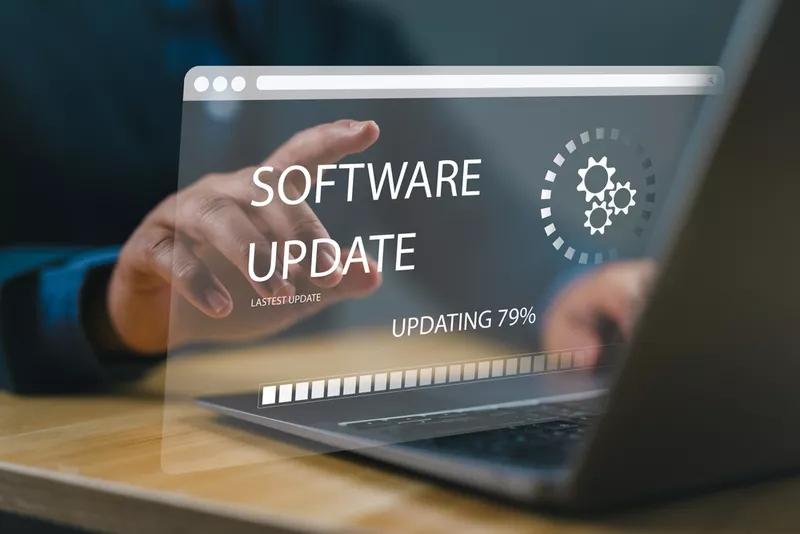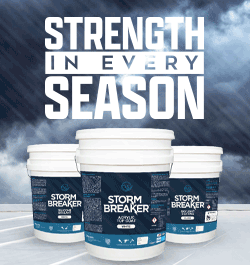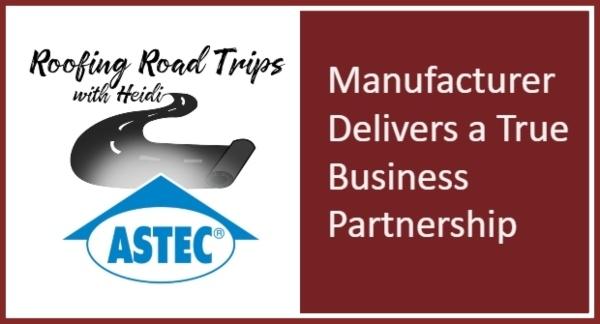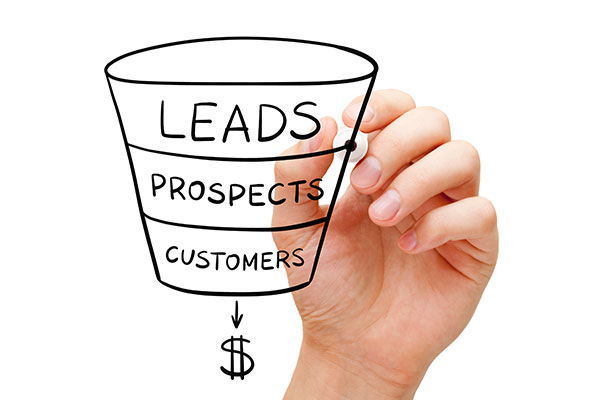Get the most out of your sales tech
October 1, 2025 at 3:00 p.m.By Ingage.
Get the most out of your existing sales tools with this smarter, faster approach.
Every sales leader wants more from their team: more leads, more deals, more efficiency. But the answer isn’t always a shiny new app or a pricey software upgrade. In fact, the biggest boost to your bottom line might already be sitting in your tech stack, underused and undervalued. At Ingage, we’ve seen firsthand how often companies overlook the powerful tools they already pay for. Most companies are sitting on sales tools packed with untapped potential, simply because no one took the time to unlock it. Want to outpace your competition without overspending? Start by making your existing tech earn its keep.

Audit your current tech stack
Before you can maximize the potential of your existing sales technology, it’s important to take a close look at your current tech stack. This audit process will help you identify underutilized features, overlooked integrations and opportunities to streamline your workflows.
Review and evaluate what you have now
First, you’ll need to conduct a comprehensive review of your current sales technology. In addition, you’ll want to define specific outcomes you wish to achieve by enhancing your tech utilization. The objectives could include streamlining internal processes, enhancing the client experience or improving data security. A well-defined roadmap will direct your efforts to ensure purposeful technology integration.
Underutilizing features and integrations
Many companies fail to unlock the full potential of their sales technology simply because they are unaware of all the features and integration possibilities at their disposal. Take the time to explore each tool thoroughly, consulting user guides and support documentation. What features and functionalities are you currently using? Are there any capabilities you’ve overlooked or not fully leveraged?
This assessment will illuminate areas of your tech stack that may be ripe for optimization. You may be surprised to discover the powerful capabilities you’ve been missing. Identifying these underutilized resources is key to maximizing your existing investments.
Make sure your sales teams are trained on existing tools
Underutilization of your current sales tech could result from employees’ lack of knowledge about how to fully use the tools at their disposal.
Employee training should be ongoing
Ongoing training ensures your sales team can fully benefit from your existing sales technology. Employees may not be aware of new features or functionality updates or they may have forgotten how to use specific tools effectively.
Providing continuous training opportunities, whether through in-person sessions, online tutorials or one-on-one coaching, can help keep your team up-to-date and empowered to maximize the capabilities of your current tech stack.
Reaching across generations in tech adoption
Digital literacy levels vary across age groups, presenting unique challenges in adapting to digital tools and technologies. Younger generations are generally more tech-savvy and quicker to adapt. Older generations may show more resistance and need more support. However, resisting technology can hinder your organization’s efficiency and digital transformation efforts.
Tailoring your training and implementation strategies to accommodate these generational differences can help ensure widespread adoption and improve proficiency across your organization. Launch peer mentorship programs, provide accessible user guides and encourage open communication to bridge any technology gaps. By empowering all employees to leverage your current tech stack, you unlock its full potential and drive consistent, high-impact results. Show your sales team how embracing sales technology can benefit them.
Optimizing workflow and processes
With a thorough understanding of your existing sales technology, you can now focus on optimizing your workflows and processes.
Streamlining workflows with the right tools
Integrating your sales tools and automating repetitive tasks will streamline workflows and allow your teams to focus on higher-value activities. Leveraging features like automated data entry, lead routing and task scheduling eliminates manual bottlenecks and helps ensure a seamless, end-to-end sales process. By aligning your technology with your operational needs, you significantly boost efficiency and improve data accuracy.
Collaboration tools that connect remote and hybrid teams
Effective collaboration is essential for sales success in today’s distributed work environment. Leveraging the proper communication and project management tools can help remote and hybrid teams stay connected, aligned and productive. Features like video conferencing, file sharing and real-time task tracking facilitate seamless information exchange, enable better visibility and foster a sense of team cohesion—even when your employees are working from different locations.

Using data with current tools to yield sales insights
Your CRM system is a treasure trove of data that can unlock powerful sales insights if leveraged effectively. If you are not using this data, you are missing a vital opportunity to improve sales.
Gathering data through existing tools
By using your CRM’s robust reporting and analytics capabilities, you can better understand your sales pipeline, customer behavior and team performance.
Accessing real-time data on lead sources, conversion rates and sales activity can help you optimize your strategies and drive measurable improvements in your sales outcomes. The key is taking the time to fully explore the data visualization and reporting features within your existing CRM, ensuring you extract maximum value from this critical sales technology.
Assessing data to make better sales decisions
Once you’ve harnessed the data from your existing sales tools, the next step is to analyze and apply those insights effectively to uncover patterns, identify opportunities and make more strategic, data-driven choices.
Leveraging advanced lead-scoring models can help you focus on the most promising prospects. Accurate sales forecasting, powered by historical data and predictive analytics, enables you to anticipate demand better, allocate resources and set realistic targets. You can significantly enhance your sales impact by transforming raw data into actionable intelligence.
Making tech integrations work for you
Having great sales technology is of no use if it doesn’t integrate into your workflow and contribute to more streamlined sales processes.
Syncing sales software
Effective systems integration entails aligning different tech components to operate as a cohesive unit. Critical elements of integration include interoperability, data integration and process integration:
- Interoperability ensures seamless communication and data exchange between systems.
- Data integration merges information from various sources into a unified view.
- Process integration coordinates business workflows across platforms to eliminate redundancy and boost efficiency.
Integrating common tech tools
Integrating your sales technology is crucial for maximizing efficiency and productivity. By connecting your CRM with other tools in your sales stack, you can streamline workflows, eliminate data silos and enhance collaboration. For example, integrating your CRM with email, calendar and communication platforms can automate data entry, schedule meetings and facilitate seamless information sharing.
Similarly, integrating your CRM with lead generation, proposal and e-signature tools can create a more cohesive, end-to-end sales process. When your sales technologies are properly integrated, you can unlock greater visibility, improved data accuracy and more efficient sales operations without needing a costly tech stack overhaul.
The importance of keeping current systems up-to-date and full utilization
Regularly updating your sales technology is essential for maintaining peak performance and unlocking new capabilities. As software vendors release enhancements, failing to install these updates means missing out on opportunities to streamline workflows, enhance data insights and improve the user experience for your sales team. Additionally, outdated systems can become vulnerable to security threats and compatibility issues, undermining the integrity of your sales operations.

By proactively keeping your technology current, you can ensure your existing tools continue to perform optimally and deliver maximum impact. Frequent updates improve system reliability and enable your team to adapt to evolving market demands, which is key to staying ahead of the competition.
Top features today’s sales tools have to offer
Modern sales tools have various advanced features designed to improve the entire sales cycle. Some key capabilities already discussed include robust data analytics, reporting and predictive lead-scoring models. Automated workflow and task management features streamline repetitive processes while integrated communication and collaboration tools facilitate seamless coordination, even for remote and hybrid teams.
Many sales platforms offer advanced features like AI-powered sales forecasting, sentiment analysis and conversational intelligence to enhance decision-making and customer connections even further. Additionally, presentation tools that enable the creation of visually compelling proposals, pitch decks and product demos can also be a powerful addition to the sales tech stack, helping to captivate and engage customers. Integration with business systems such as marketing automation creates a cohesive, end-to-end sales ecosystem.
Original article and photo source: Ingage
Learn more about Ingage in their Coffee Shop Directory or visit www.ingage.io.






















Comments
Leave a Reply
Have an account? Login to leave a comment!
Sign In